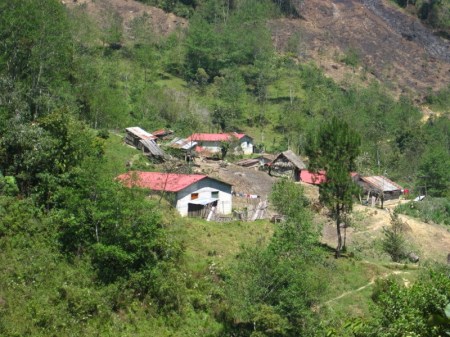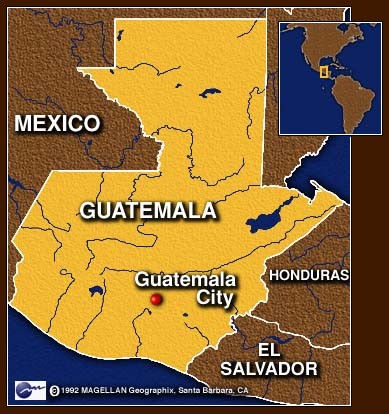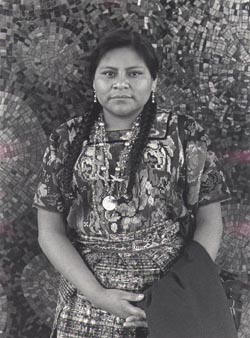
On August 9, 1959, Rigoberta Menchú was born to a poor family of the Quiché branch of the Mayan culture. Her village, Chimel, was her life, where she helped her parents on their very small plot of land in which they grew maize. It was a mountainous region where Menchú’s parents were forced to migrate to in 1960, because of the ethnic superiority of rich ladinos (or mestizos), who had taken over their small town. Menchú‘s small community consisted of an elected leader, one whom every member of the large family looked up to as a father. All of the village children were raised by the village mother and reprimanded by the community. The father and mother of the Chimel village were none other than Menchú’s parents.
Menchú spent almost every waking hour of the day working with her parents and her five siblings on a finca, or farmhouse, because during the initial years, their own land was not ready for planting. She never attended school; yet, as all of us were at that young age, she was delighted with her life, and remained optimistic about her future. Each day would see them climbing on a lorry with many other workers, smelling dirt and filth on their way to the farm. On the farm, Menchú’s family and other peasants toiled endlessly for little pay, most of which went into repaying their debts to landlords. During their time on the farm, whenever it was time for elections, the landowners forced the workers to vote on behalf of the President, yet most did not know how to read. Also, living conditions on the farm were unsanitary and scant. Hundreds of people shared one room, leaving many to adjust. Working conditions were brutal, especially during the afternoons when temperatures would rise to unbearable degrees.


Because of their dire situation, children often went without food for many days. When Menchú was little, her younger brother died of malnutrition. Before she was born, her eldest brother Felipe died from pesticide that was sprayed all over the crops. However, her most devastating memory was watching another brother, Nicolas, die. He had been continuously crying because of malnutrition and his belly was swollen. The worst part was that neither Menchú nor her mother could ask anyone for help, since everyone working on the finca spoke a different language, nor could she understand Spanish easily, the language of the landowners. Soon, the body began to smell because of the humidity, and her mother was forced to bury her son in the finca, paying taxes to the landowner with money she did not have. Immediately afterwards, Menchú and her mother were dismissed from farmhouse for ‘wasting’ an entire day mourning for the loss of their loved one. The language barrier was another issue that Menchú and many others had to cope with. As much as she desired to converse and play with the hundreds of other children sharing her room, there was no way to communicate with them. Besides, they started work early in the mornings and did not finish until late at night.

After enduring struggle after struggle, Menchú joined a guerilla organization of peasants fighting for better working conditions. Around this time, Menchú’s father, Vicente, a very influential figure in her life, especially notable since she claimed that she was her father’s favorite, was arrested for allegedly murdering a plantation owner. This devastated her immensely, especially when she went to visit her father in Santa Cruz prison, where he was grouped together with a pack of madmen, on the verge of losing his sanity. At that point, Menchú began to work longer hours in order to pay for a lawyer to fight for her father’s case. As fate would have it, Vicente Menchú was freed, only to be kidnapped and tortured by landowners who were seeking revenge for his escape. This incident shaped Menchú’s entire perspective on the dire situation of her people. Her father’s endurance, courage, and sense of justice greatly inspired her to act for her people’s cause.